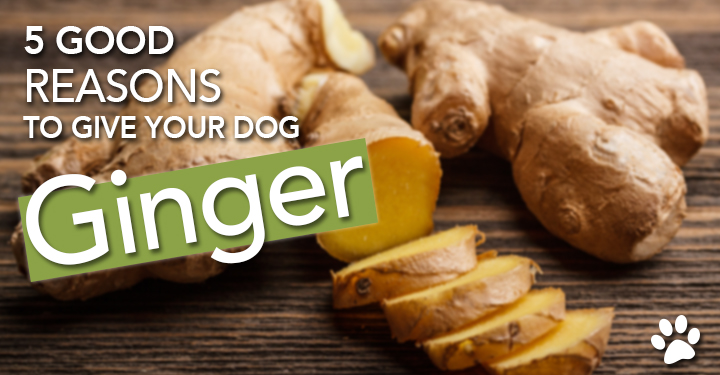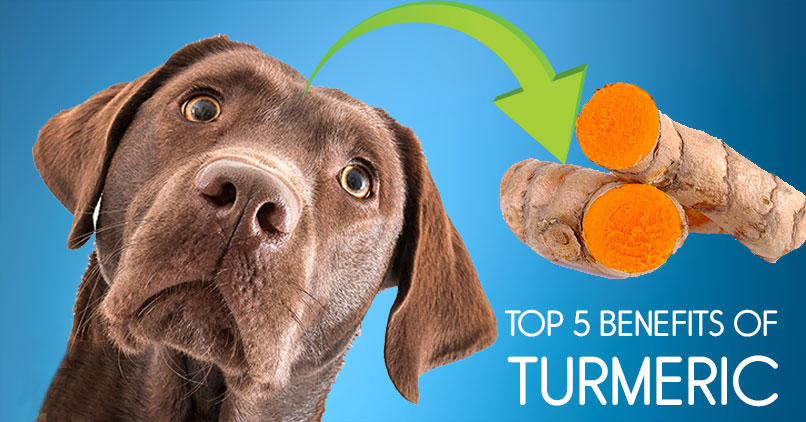- Order Tracking
- My Wishlist
- My Account
- 0 Item(s)
Your cart is currently empty.
Why And How To Give Your Dog Ginger
- home
- Why And How To Give Your Dog Ginger

January 8, 2020
Why And How To Give Your Dog Ginger
There’s a good reason why you instinctively reach for some ginger ale whenever your stomach feels off. A large part of ginger ale’s soothing qualities is, you guessed it, ginger.
So what’s so great about ginger?
The root of the ginger plant, which is in the same family as turmeric, has been used as a spice and medicine in Asian, Arabic and Indian countries for thousands of years. Ginger’s function as a digestive aid for stomach upset and nausea is probably the best known benefit. But it’s far from the only one. In fact, its potential benefits extend way past digestive into more serious conditions like osteoarthritis and even cancer.
For this reason, many holistic practitioners have been recommending incorporating this powerful root into diets of pets with specific conditions, as well as for general health maintenance. Here are five ways ginger may help your dog:
Nausea
There are many reasons why a dog might be having nausea and vomiting. Perhaps he’s a little under the weather? Or he has car sickness? Or maybe he’s undergoing cancer treatment? Whatever the reason, there’s a very good chance some fresh ginger or even the powdered spice version can help. Always keep some handy for when you suspect your dog has an upset stomach. If your dog gets car sick, give him the ginger about 30 minutes before he gets in the car.
Bloat
Gastric dilatation volvulus (aka bloat) is a life-threatening condition of larger breeds that involves expansion of the stomach from built up food and gas that isn’t being expelled. Though an exact cause hasn’t been scientifically confirmed, there are plenty of risk factors.
Read this to learn more about preventing bloat naturally in your dog.
According to materials written by Steve Marsden, DVM, and Shawn Messonnier, DVM, and Cheryl Yuill, DVM, for PetCareNaturally.com, ginger may play a role in relieving or preventing bloat in dogs due to its ability to stimulate movement in the stomach and accelerate emptying of the stomach, as demonstrated in several studies.
Arthritis
Since arthritis is an inflammatory disease and ginger is a natural anti-inflammatory, incorporating ginger into your dog’s diet if he is suffering from inflamed joints could offer some relief. It is certainly showing promise in studies for arthritic humans.
Cancer
Yes, ginger has even shown benefits as a cancer fighter in some studies. According to Demian Dressler, DVM, in the DogCancerBlog.com, one study showed that ginger could slow the rate of breast cancer growth in mice; while another study demonstrated that ginger could kill lymphosarcoma cells in a test tube. Plus, since inflammation plays a role in cancer development, ginger’s anti-inflammatory abilities also come in handy when it comes to cancer, according to Dressler. And since cancer and immune system suppression typically go hand-in-hand, ginger’s immune-boosting powers are another plus, he says.
Heartworm
Heartworm is one of those diseases you really don’t want your dog to get. Conventional treatment options are risky and difficult. But conventional prevention options are full of chemicals and risks as well.
Learn more about holistic options for heartworm treatment and prevention, here.
Take comfort in knowing that at least one study has shown great promise in using ginger to treat heartworm disease in dogs. The reduction of microfilarial (heartworm larvae) concentration ranged between 83 percent to 98 percent in infected dogs treated with ginger.
How to Use
Ginger comes in a variety of forms, including powder, capsule/pill, tincture, tea and raw root.
To administer in raw form, you’ll need to cut the skin off with a knife and finely mince the yellow part of the root, according to Dressler. Give 1/2 teaspoon for dogs under 35 pounds (1/4 teaspoon for miniature breeds) and 3/4 teaspoon for larger dogs, he says. It can be mixed into your dog’s food. Always start slow and check with your holistic veterinarian if you are unsure about dosing.



Leave a Reply